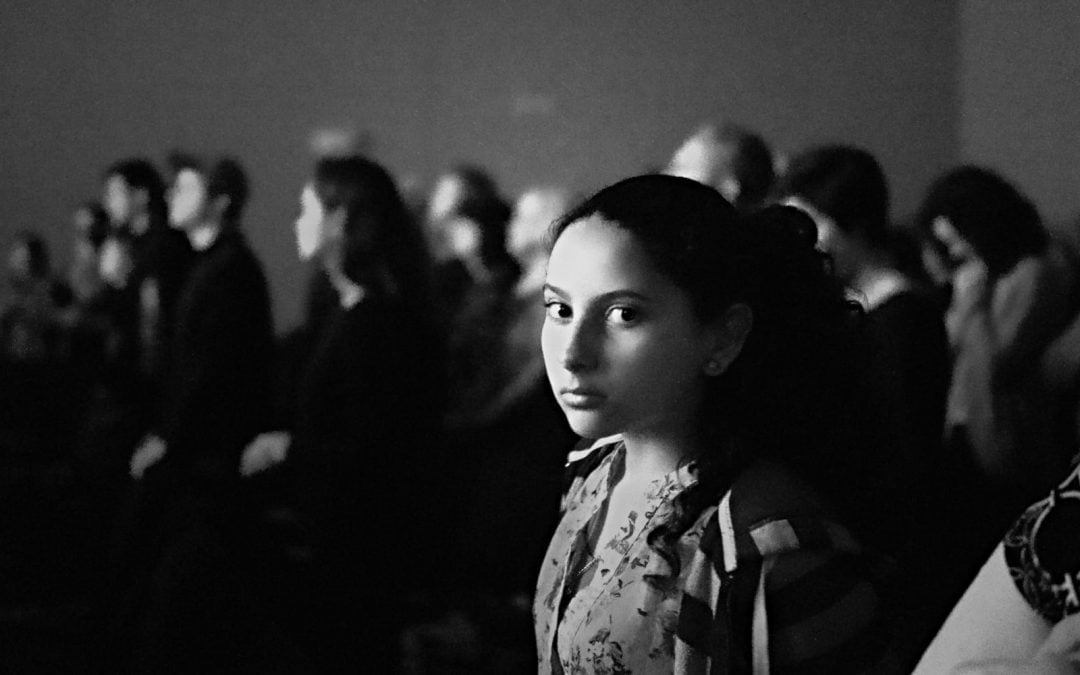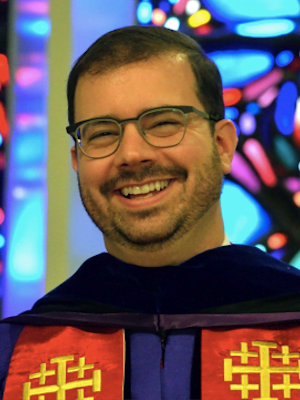I celebrate 10 years of ordained ministry in a little over a month.
For the last four years, I’ve served as pastor to a congregation in Harvard Square. But I’ve been “playing church” since I was 5 years old.
In a chapel built for me by my father and grandfather, in a tiny robe and stole sewn for me by my grandmother, I enacted through play an early sense of call that I would later articulate and follow into ordained ministry.
The path would not be a “straight” one, so to speak. My sexuality and my sense of call would intersect in complex ways along the winding journey.
At times, the intersection made the possibility of following my call to ordained ministry seem nearly impossible, for which I was sometimes resentful.
At other times, the intersection queered my sense of call in creative and generative ways, for which I am deeply grateful.
For several years now, I’ve returned over and over again to a quote from queer theologian Elizabeth Stuart.
She says, “The space of the marginalized is often a space where imagination can flourish outside the restricting dictates of the mainstream.”
I wrote my doctoral dissertation on the ways that religious and spiritual narratives set life on edge, helping make suicide a thinkable option for some LGBTQ people.
While I wanted to learn more about the theologies that made living precarious, I also wanted to learn how LGBTQ people worked with those theological sources in the aftermath of surviving.
I wanted to hear how they queered theologically violent narratives in order to survive and thrive.
During my interview with “Thomas,” a 48-year-old man, I was astounded by his creative theological sophistication in reworking harmful theological narratives from his childhood, all the while maintaining his life of faith.
At the end, I remarked, “It sounds like you’ve been reading a lot of academic queer theology.”
Thomas replied, “What is queer theology?”
Thomas had never heard of queer theology, much less read any of it. Nor had he been part of a welcoming and affirming church, which he didn’t know existed.
For nearly three decades, Thomas had been exiled to the ecclesial wilderness – “the space of the marginalized” – where his theological imagination flourished, albeit without the sustenance of community to share with him in the journey.
He became a transgressive queer theologian for the livability of life, and the perspective he developed was one of depth and beauty amid great rejection and pain.
A week or so ago, I spoke at an event on LGBTQ theologies organized by a few churches in Spartanburg, South Carolina, just a few miles from where I grew up.
Amid the dozens of events like this that I’ve participated in, organized by predominantly straight and cisgender people, this one was unique – revolutionary, as one speaker put it.
The organizers invited five queer people to speak: white and African-American, women and men and transmasculine, gay and bi and pansexual, a diversity of religious perspectives that there aren’t enough words to describe. It was a remarkable group.
The most “revolutionary” part of it wasn’t just who the speakers were. It was that the organizers invited us to speak without giving us their agenda.
The day wasn’t guided by the questions of straight and cisgender people. The topics didn’t revolve around concerns of “affirmation” or “inclusion” for LGBTQ people that occupy the collective mental space of so many congregations.
The organizers invited us to speak about our lives, our experiences, to ask our questions and explore our theologies, and to invite the hundred or so participants who showed up to enter the dialogue with us.
What emerged from that conversation surpassed anything I could have imagined in its creative capacity to provoke insight, elicit tears, incite laughter and invite intimate conversation among participants.
Looking back on a decade of ordained ministry and nearly a lifetime of “playing church,” all in all, being queer has made me a better minister.
Like Thomas, being queer has helped me question the status quo theological narratives to become a transgressive queer theologian for the livability of life – my own and others.
Being queer has goaded me into new arenas of compassion, peace and justice in my ministry when the dominant narratives invite complacency.
Learning to honor my own queer imagination, to listen to my own queer voice, has become a ministerial advantage.
Being queer is a gift to me. And queer folks are a gift to churches too. Churches that cut themselves off from the potential of learning queer lessons are diminished in their capacity to experience the sacred.
Like my colleague said of the gathering in South Carolina, foregrounding queer experience in theological space, listening to queer folks’ narratives on their own terms, and learning to see the advantage of queer imagination is truly revolutionary.
Editor’s note: This article is part of a weeklong series. Previous articles in the series are:
Finding Common Ground Amid Contentious Debates by Holly Hollman
When You Need Christ’s Love, Leave It to The Samaritans by Paige Hardy
Why Church Volunteers Need Training to Work with Transgender Youth by Justin Joplin
Court Cases Foreshadow Dangerous Times for LGBTQ Equal Rights by Don Holladay
Unsure About Accepting LGBTQ Folks? God Gave You the Keys by Jim Dant
The Experience of Christian Parents of a Christian Gay Child by Greg and Kelly Otis
Crossing Chasm That Seemingly Divides Bible, LGBTQ Loved Ones by Preston Clegg
Cody J. Sanders, PhD, is a Baptist minister serving as associate professor of congregational and community care leadership at Luther Seminary, St. Paul, MN. Previously a parish pastor and higher education chaplain at Harvard and MIT, he is the author of several books on religion, ministry, and LGBTQ+ concerns.


